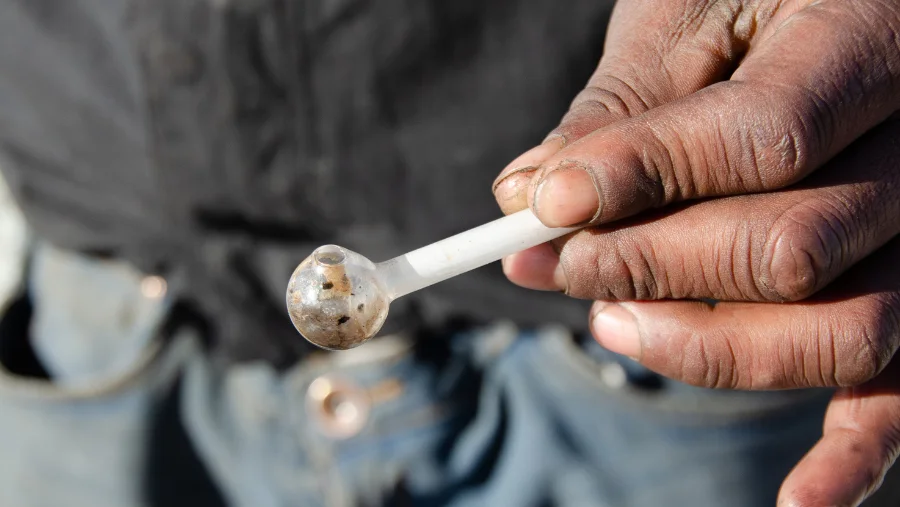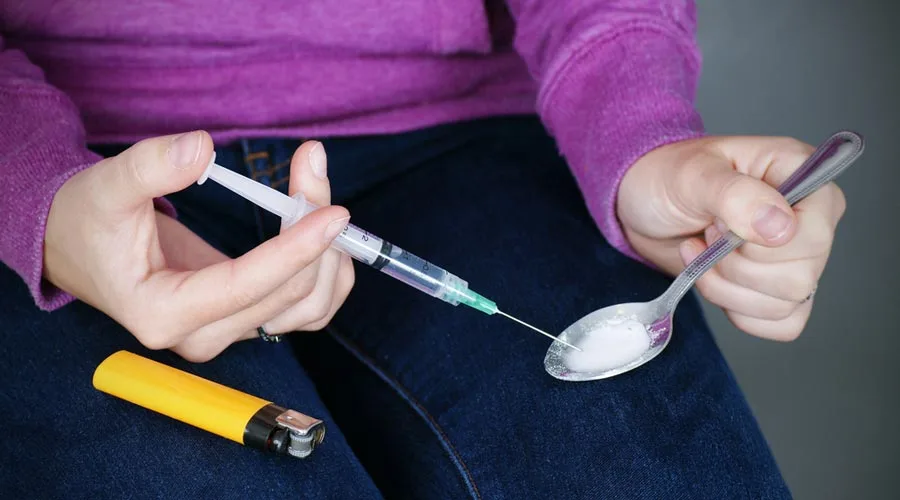Our Programs for Effective Meth Detox and Lasting Recovery
You might compare methamphetamine addiction to a complex board game. You begin with a sense of determination, ready to navigate the path ahead of you and confident you’ll claim victory over the addiction. You take each step forward confident you’ll succeed. You believe you’ll beat the game this time. But methamphetamine withdrawal symptoms are an unpredictable opponent.
When you think you will finally see some incredible progress, you draw the doom card that sends you back to square one. Back at the starting block, you lick your wounded pride, regain your power, and prepare to start over again.
At South Shores Recovery, we recognize the frustration and the fatigue of this cycle. We see the person behind the struggle. We see you. You’re there pushing forward, game after game, searching for a lasting win. With our help, you will no longer react to the whim of a roll of the dice. Instead, we will give you the tools you’ll need to beat the game once and for all.
We invite you to read on and learn how we can offer you a new sense of hope and control. We will help you step into a future where the game no longer dictates your life, one where you have the power to win.
What Is Methamphetamine?
The Substance Abuse and Mental Health Services Administration describes methamphetamine (meth) as a highly addictive synthetic stimulant. Because of its addictive nature, the withdrawal can be severe
Furthermore, a study published by the National Institute of Health reviewed the relapse rate of abstinent methamphetamine-dependent subjects. The researchers found a connection between severe meth withdrawal symptoms and increased relapse rates.
Meth withdrawal is challenging with drug cravings and other uncomfortable symptoms. Fortunately, treatment centers like South Shores Recovery can help you overcome these hurdles.
The Chemical Grip of Drug Addiction
Methamphetamine works by flooding the brain with dopamine, a neurotransmitter that elicits the feeling of reward or pleasure. The surge of dopamine released during meth use is far beyond the natural levels. It creates an intense high that people often seek to recreate, leading to a cycle of abuse.
This artificial and extreme dopamine spike is what underlies the chemical dependency associated with methamphetamine and amphetamines as well.
With repeated meth use, the brain’s structure and function undergo physical changes. As a result, people who use it end up with impaired judgment and decision-making. They also lose the ability to experience pleasure without using meth.
The dependency is not just a craving. It is a chemical demand by the brain for a substance that alters its foundation. The brain becomes reliant on methamphetamine to stimulate the release of dopamine. So they begin to struggle with meth withdrawal symptoms without it.
How Methamphetamine Users Consume the Drug
Are you trying to understand the experiences of someone you care about? We commend you for learning more about the reality of drug abuse.
Here is how those who are addicted to meth use it these ways:
Some people may smoke a crystalline form – you might know it as crystal meth. Crystal meth use sends the drug into the bloodstream and brain quickly for an immediate high.
Others may snort the powdered form for a slightly slower onset of effects or ingest it orally for a more gradual but still powerful high.
Injecting methamphetamine is the final method. Using meth intravenously carries heightened risks, as needles raise the potential for contracting infectious diseases.
No matter the method of use, methamphetamine acts rapidly and delivers its potent effects swiftly, which contributes to its high potential for addiction.
The Cycle of Methamphetamine Use and Drug Abuse
Users may feel an intense rush of euphoria, increased energy, and a sense of heightened alertness right after using meth. However, they shortly after experience a comedown. This quick cycle causes cravings, and the urge to use the drug again.
This cycle causes repeated use, where the person uses methamphetamine for several days, skipping food and sleep. After the binge, they often face a severe “crash,” with extreme fatigue, withdrawal, and depression.
The Physical Toll of Repeated Meth Use on the Body
Stimulant use disorder, or long-term abuse of methamphetamines (like all illicit drug use) takes a significant toll on the human body. It creates negative consequences that can be both severe and enduring. The drug leads to stimulant addiction, ramping up bodily functions to unsustainable levels.
Pushing the body with these chemicals can increase heart rate and blood pressure, harming the cardiovascular system. This substance abuse can result in the following issues:
- Increased risk of heart attack and stroke
- A decrease in appetite
- Dramatic weight loss and malnutrition
- Weakening of the body’s immune system
- Dental problems and tooth decay
- Severe depression during a comedown
- Severe acne or an itchy rash
- Scratching or skin picking, causing sores and scars
- Sleep loss and extreme exhaustion
The cumulative effect of these mental and psychological symptoms ailments creates a vicious cycle that is hard to break without professional help.
What are the Symptoms of Methamphetamine Withdrawal?
Meth withdrawal is a multifaceted process. The symptoms can impact all facets of someone’s well-being and can be physical, psychological, and emotional.
Physical Symptoms of Meth Withdrawal
Powdered and crystal meth withdrawal symptoms cause several physical challenges.
During withdrawal, people who struggle with meth abuse may experience extreme fatigue. They may also have sleep disturbances, from insomnia to an increased need for rest.
Other physical symptoms may include these:
- Increased appetite
- Dehydration
- Nausea
- Abdominal cramping
- Aches and pains
- Headaches
During the meth withdrawal and detox process, you should seek treatment from medical professionals. Doctors can use FDA-approved medications to treat the worst of your physiological dependence on meth or other substances.
Emotional and Psychological Symptoms During Meth Withdrawal
The psychological and emotional symptoms of meth withdrawal can be more harmful than the physical ones. They can include these common symptoms:
- Severe depression
- Anxiety and panic attacks
- Intense drug cravings
- Psychotic symptoms
- Irritability and mood swings
- Cognitive difficulties
- Thoughts of self-harm or suicidal thoughts
Symptom severity during the acute phase varies from one client to another. While some experience severe depression, others don’t have this issue. That’s why it’s best to be under the care of a rehab center while detoxing from meth of or other drugs.
The Meth Withdrawal Timeline
The meth withdrawal timeline begins right away. Within a few hours to a day after the last dose of methamphetamine, withdrawal symptoms can start. After that, they may last for multiple weeks. The most intense symptoms typically occur during the first week and gradually subside.
However, some individuals may experience post-acute withdrawal symptoms (PAWS) that can persist for months. These symptoms of meth withdrawal include ongoing cravings and mood disturbances.
Understanding this meth withdrawal timeline can help prepare and set realistic expectations for a full recovery. At South Shores Recovery, we ease withdrawal symptoms through medical support and counseling. We strive to make the withdrawal process as comfortable and safe as possible to ensure long-term recovery.
Meth Addiction Treatment: What are the Benefits?
Healing from meth addiction requires a comprehensive treatment center. There, those who struggle will receive a recovery plan tailored to the individual’s unique needs. The professional team at South Shore Recovery understands that each path to recovery is different.
Full recovery from substance abuse means treating the addiction plus any co-occurring mental health conditions, known as a dual diagnosis.
Medical Detox to Ease Meth Withdrawal Symptoms
The initial step in overcoming meth addiction is often a medical detox. Some believe it is the hardest part of the entire recovery process. But with a good detox plan, it doesn’t have to be. Medical detox is a critical phase where the body is cleared of substances in a safe and controlled environment under the supervision of healthcare professionals.
During the earliest part of the meth detox process, our medical team closely monitors clients to manage their drug cravings. This close attention to the client during the acute withdrawal phase eases the worst symptoms to make meth detox as comfortable and safe as possible.
Residential Treatment for Structure and Support
Residential treatment provides a safe and structured environment where clients can focus solely on recovering from addiction without the distractions they would have in their daily lives. In an inpatient treatment program, clients receive around-the-clock care and support from a team of professionals.
This method allows for intensive treatment and close monitoring of both mental health and substance use symptoms.
Outpatient Treatment
Outpatient care is suitable for those who have completed residential treatment or whose needs demand less intensive care. This treatment allows clients to maintain their daily responsibilities in the evening but attend regular therapy sessions and support groups daily.
Behavioral Therapies Designed to Prevent Relapse
Behavioral therapies are part of most addiction treatment programs. They’ve been proven effective in treating methamphetamine addiction and any underlying mental illness.
We employ a variety of behavioral therapies, including:
- Cognitive-behavioral therapy (CBT) helps clients recognize and change maladaptive thought patterns and behaviors.
- Dialectical Behavior Therapy (DBT) improves emotional regulation and the development of coping mechanisms.
- Motivational Interviewing (MI) increases the motivation to change. That makes the treatment process an effort between the client and therapist.
These therapies address the challenges unique to methamphetamine withdrawal and recovery.
Your Struggles with Meth Can End Today: Reach Out Now!
Just like that challenging board game, overcoming meth addiction can be fraught with many obstacles and setbacks. But even the most complex games are winnable with a good strategy, support, and determination.
Seeking treatment for drug abuse is a smart decision.
At South Shores Recovery, we will be your coach. Our expertise and compassion will help you make great strides toward victory over meth addiction. From helping you obtain the most from your health insurance benefits to managing the meth withdrawal symptoms, we will be there to help.
We understand that each move in this game represents a day in your life. That means the stakes are incredibly high. The withdrawal symptoms can feel daunting, like those unexpected twists in a game that test your resolve.
Today could be the day you take control of that frustrating game. With our help, you can move beyond the cycle of addiction and draw cards that move you forward. Reach out to South Shores Recovery now and let’s claim your victory over meth together!





